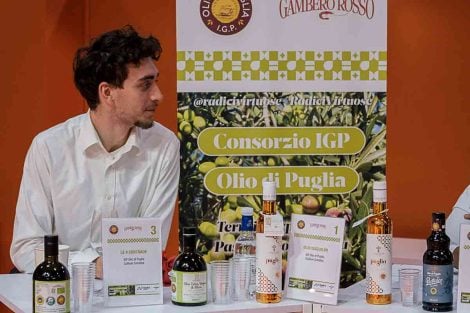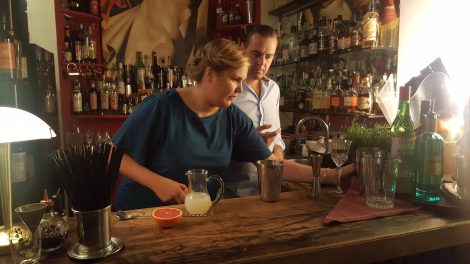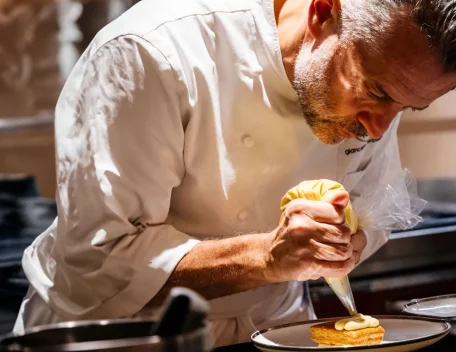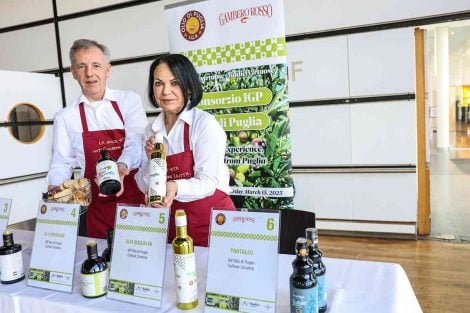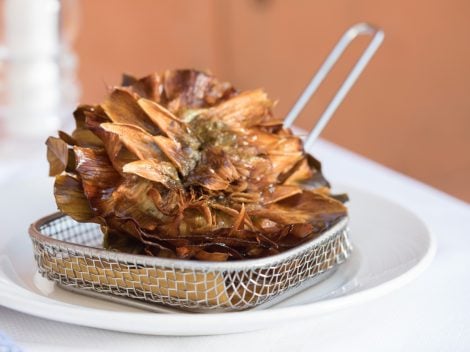by Andrea Cuomo
Jessica Rosval has planted her roots in Italy and now seeks to help other women do the same. These are women less fortunate than her, who came to Modena from the right side of the world, Canada, or rather Quebec, and to whom she decided to give back part of what life has given her. Jessica, born in 1985, with an enchanting smile, arrived in Italy about ten years ago. After working in various roles at Massimo Bottura’s Osteria Francescana, she was put in charge of the family’s additional projects, the deluxe bed and breakfast Casa Maria Luigia and Il Gatto Verde, by Bottura and his wife Lara Gilmore. In just a few years, Jessica has found her own precise culinary identity, which naturally does not overlook the territory where she works.
A model of social enterprise
We meet her in Las Vegas a few hours before she receives the Champions of Change award at the 2024 edition of the 50 Best, at a brunch organized by Illy in a suite at the Wynn Hotel to announce that Jessica is the new brand ambassador of the Trieste brand. With her, even on stage, is Caroline Caporossi, an American, with whom she created the restaurant Roots. Thanks to collaboration with the Association for Women’s Integration, Roots represents today a self-sufficient social enterprise model, training women of various origins and cultures to work in the kitchen, giving them independence and self-awareness. "But what I gain from Roots," says Jessica, "is much more than I ever imagined. There is an incredible exchange; I teach them with an open heart, but they teach me not only dishes but also human resilience, strength, and their desire to start over after what they have faced and are still facing."
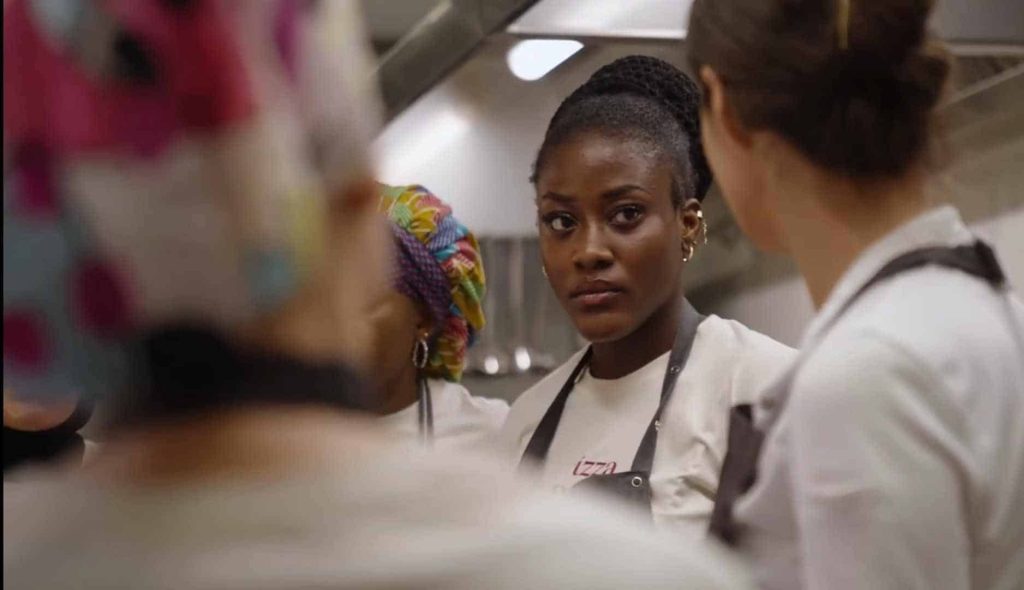
Tirocinanti at work in Root's kitchen
Twice as good
The strength of Roots is that the social value of the project is embedded in a milieu of great professionalism because "we come from haute cuisine and are accustomed to beauty, love, and dedication," and this trains the interns to work professionally and think big. "That's why I care that Roots is recognized for its social impact but also for its gastronomic quality." In other words, the social value of the project would lose momentum if the food at Roots was not good. It makes sense, doesn't it? Initially, explains Caroline, "the interns were referred to us by social services, to whom I asked for women who wanted to participate in such a project." Then word of mouth took over, and today 50 percent of them are referred by people who graduated from us. "In these groups, there is a lot of sisterhood; experiences are shared, and they tell each other where they are treated well and where not, and I am very proud that former interns speak well of us because this is proof that we are doing the right and well-done things."

Jessica Rosval and Caroline Caporossi
Duties and rights
Only a few of the women who graduate are hired to work at Roots, "it happens when a position becomes available," says Caroline, "but that is not our goal. The goal is to give them the job contact they lack; we have connections with the best restaurants in Modena, which, like throughout Italy, struggle to find staff, and we provide references for the interns." Of the 43 women from 17 different countries who worked at Roots last year, 95 percent found jobs. Naturally, it helps that the training takes place in a real restaurant. "They work in a place that is open five days a week, they work on weekends, they understand what it means to work in a high-quality restaurant. And we also teach them workers' rights, how to read a payslip, Italian language if needed, public speaking to build their self-esteem." A similar course for dining room staff will soon be added to the kitchen training course.
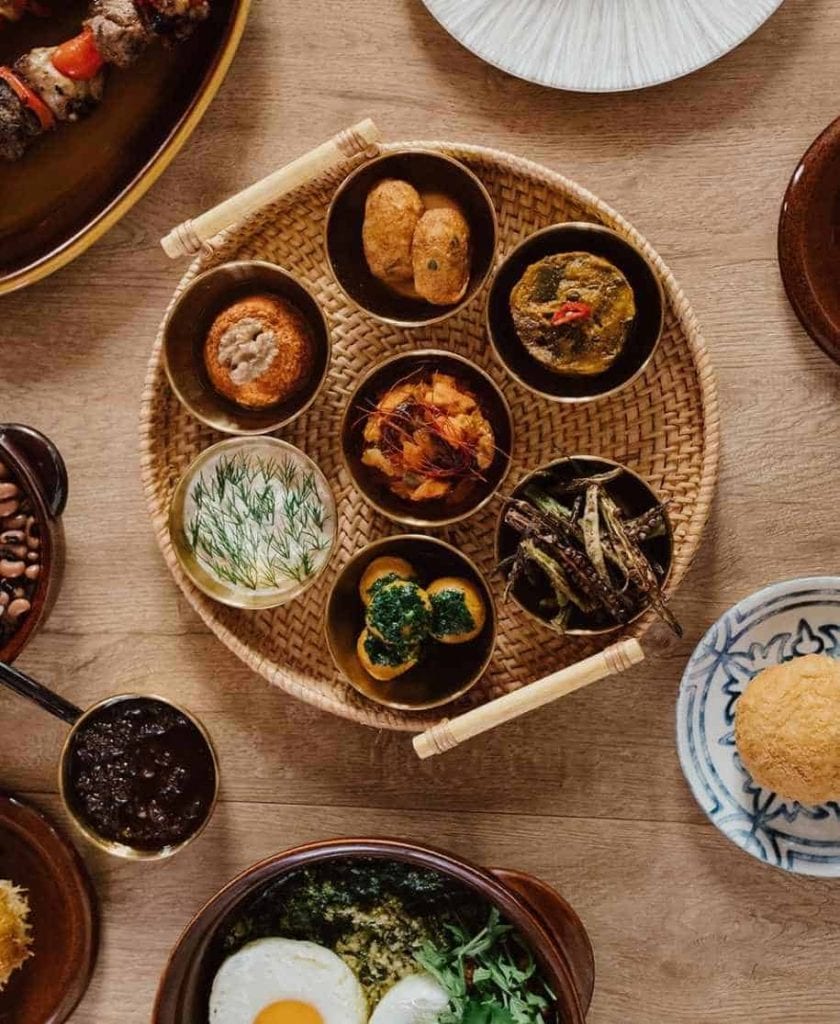
A Roots dish
The story of Zuahira
When I ask Jessica and Caroline to tell me a story that could serve as an example, they hesitate, not wanting to make distinctions among the women who have passed through Roots. In the end, they decide to tell me about Zuahira, a Moroccan woman. "She was part of the first course," explains Caroline, "which started in February 2022, two months before the restaurant opened. At the beginning of each course, we ask the women to cook a dish that tells their life story, and she made a Tunisian dish, brik, but she used Parmigiano Reggiano instead of the Tunisian cheese she couldn't find. She had a beautiful journey, was very good, we wanted to hire her, but she was looking for different work hours. She now has another job but also does a lot of volunteer work. She teaches other Arab women to drive and always returns to Roots on the first and last day of a course, like a mentor."

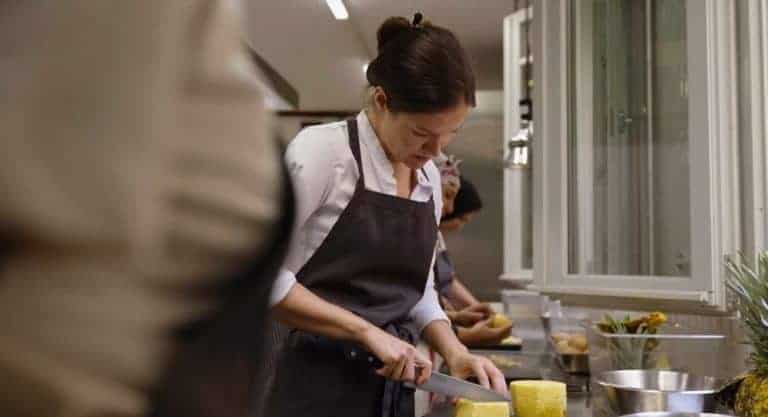
 Oenologist Riccardo Cotarella will also produce dealcoholised wine: "My first bottle will be out in October and it won’t be bad"
Oenologist Riccardo Cotarella will also produce dealcoholised wine: "My first bottle will be out in October and it won’t be bad" Dear natural wine world, enough with the constant polemics. If you don’t want to self-ghettoise, self-criticism is needed
Dear natural wine world, enough with the constant polemics. If you don’t want to self-ghettoise, self-criticism is needed In Bologna, there is an ancient osteria where you can bring your own food
In Bologna, there is an ancient osteria where you can bring your own food Unknown genius: the Italian inventor of Cynar who was building electric cars and studying Artificial Intelligence 50 years ago
Unknown genius: the Italian inventor of Cynar who was building electric cars and studying Artificial Intelligence 50 years ago The 11 best-value Dolcetto wines from the Langhe
The 11 best-value Dolcetto wines from the Langhe